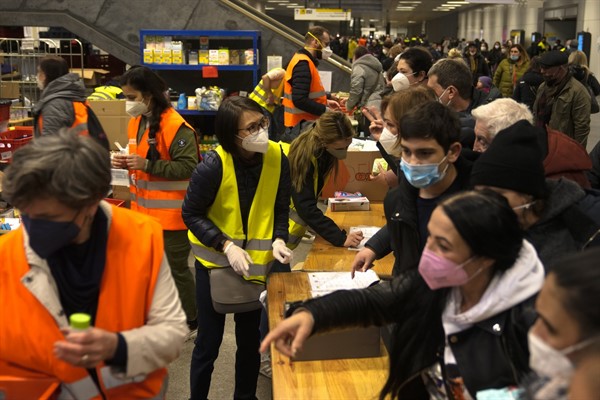AMSTERDAM—Back in February, when the Russian invasion of Ukraine began, a meme went viral on Facebook: “Just booked a Kiev AirBnB for 1 week, simply as a means of getting cash into the hands of Kiev residents. It’s really cheap and can make a small difference right now.” The phenomenon, known as “ghost-bookings,” became a simple, personalized, grassroots method to provide resources to and demonstrate solidarity with Ukraine’s civilian population, while assisting Airbnb hosts in Kyiv who were housing internally displaced persons, or IDPs, fleeing from the invasion further east.
This sort of grassroots effort has become not only common but preponderant in the humanitarian response to the Ukraine war, even if it’s not necessarily a good way to get money to refugees. Airbnb garnered some positive press from the effort however, which helped highlight its own, separate effort to support refugees, now splashed across its homepage. This program does target refugees rather than hosts, but it does not enable customers to support individual families in a grassroots fashion like the ghost-bookings movement. Rather, it is run through third-party nongovernmental organizations that have forged special relationships with Airbnb for acting in specific contexts.
This program predated the Russian invasion and works at the initiative of hosts rather than refugees or customers. It involves matching hosts willing to house a refugee with refugees connected to a couple of specific NGOs or the International Organization for Migration. Airbnb pays for a few rooms itself and waives fees for others. NGOs then match refugees to hosts that have themselves signed up to be part of the program. There are advantages in this more bureaucratic model: Airbnb enhances security for the hosts by allowing NGO intermediaries to select refugee guests and by vetting them against various watchlists, including for terrorism and travel sanctions. But while this vetting assists hosts, too little attention seems to be paid by NGOs to ensure that housing matches the needs of the refugees.

